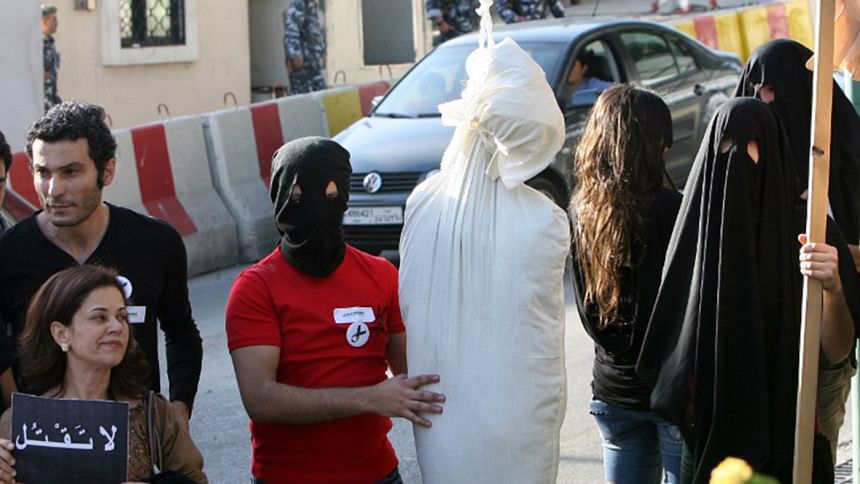Murder After Group Fight: Saudi prince executed

Saudi Arabia on Tuesday executed a member of the royal family for murder, the first time in four decades it had done so, after he was convicted of shooting another man to death during a brawl.
Prince Turki Bin Saud Al-Kabir was found guilty of shooting to death Adel Bin Suleiman Mohaimeed following a group fight in al-Thumama region on the outskirts of Riyadh.
The execution orders have been carried out in Riyadh city, according to a statement from the Ministry of Interior, carried by the Saudi Press Agency. While the report did not detail the method used, most death penalties in Saudi Arabia are carried out by beheading in a public square.
“After investigations, the authorities charged him of committing the crime and his indictment was sent to the General Court. He was charged with what was attributed to him and sentenced to death,” the statement said.
The Court of Appeal and the Supreme Court both agreed on the death penalty. A Royal Decree was issued for the implementation of the court's order.
The victim's family refused offers of 'blood money' and demanded justice be carried out.
The ministry confirmed to everybody that the government of Custodian of the Two Holy Mosques King Salman is keen on enforcement of security and justice by implementing the rules prescribed by Allah Almighty on whoever violates the sanctity of civilians and commits bloodshed.
It also warned that legitimate punishment would be the fate of whoever dares to commit such a crime, the statement added.
Tuesday's execution was the first time that a member of the royal family had been put to death for murder by the state since 1975, when Prince Faisal bin Musaid was beheaded in Riyadh for assassinating King Faisal.
A New York Times article about that event said that some 10,000 people “watched silently as the executioner swung a sword with a golden hilt, but then thousands broke into chants of 'God is great!' and 'Justice is done!'”
A couple of years later, a princess and her husband were accused of adultery and executed after the princess refused to marry a man selected by the family. The princess, Mishael, was shot as her husband, Khalid Muhallal, watched. He was then beheaded, according to a New York Times obituary of her grandfather, Prince Mohammed Ibn Abdel-Aziz.
It was unclear how many people watched the execution of Prince Turki on Tuesday or what their immediate reaction was.
The state news media report did not release his age or provide any other biographical information.
Another member of the royal family, Prince Faisal bin Farhan al-Saud, said by telephone from Riyadh that Prince Turki was from one of the most prominent branches of the royal family after that of the direct descendants of King Abdulaziz, who founded the modern Saudi state in 1932.
That genealogy earned Prince Turki no extra credit with the courts or with the king, Prince Faisal said.
“The king has always said that there is no difference in the law between princes and others, and I think that this is clear manifestation of the reality of that fact,” he said.
According to Saudi reports, Prince Turki shot a man during “a group fight” that occurred a few years ago.
Prince Turki's execution rocketed around the kingdom's social media networks, with some Saudis saying they never imagined such a thing would happen and others arguing that it showed the quality of their justice system, which follows a strict interpretation of Shariah law and is often criticized by human rights groups and Western governments for what they consider harsh and arbitrary punishments.
“The greatest thing is that the citizen sees the law applied to everyone, and that there are not big people and other small people,” Abdul-Rahman al-Lahim, a prominent Saudi lawyer, wrote on Twitter.
Other Saudis lauded the monarch, King Salman, on Twitter under an Arabic hashtag that translated as, “Decisive Salman orders retribution for the prince.”
Adam Coogle, a researcher at Human Rights Watch who tracks Saudi Arabia, said the execution of the prince did not affect his organization's criticisms of the country.
Saudi Arabia has executed 134 people so far this year, according to a count by the group, which opposes the death penalty in all cases.

 For all latest news, follow The Daily Star's Google News channel.
For all latest news, follow The Daily Star's Google News channel. 



Comments